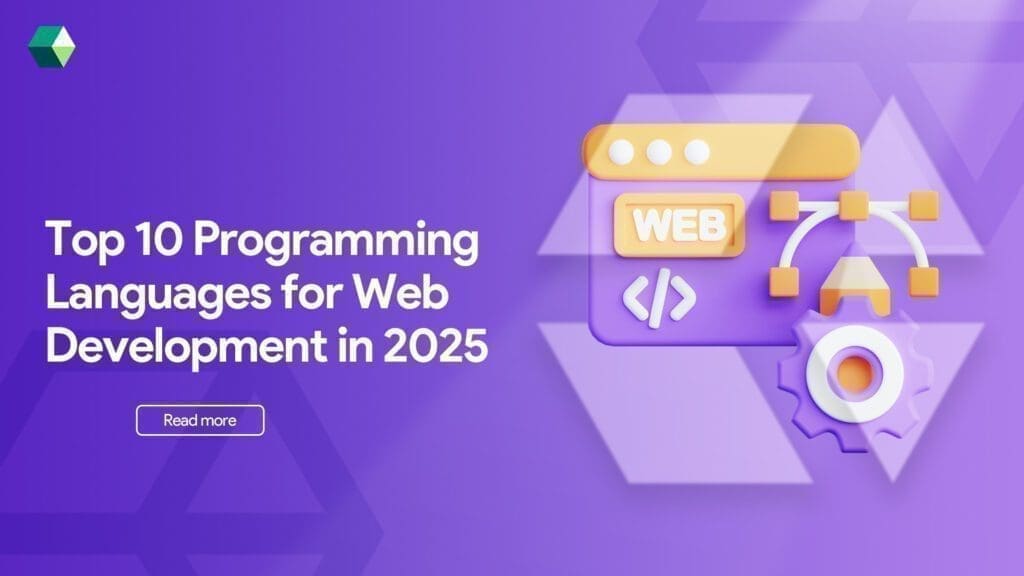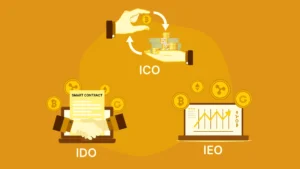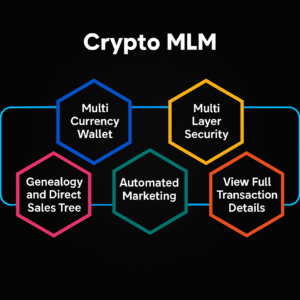
Web development is an ever-evolving field, and as we move into 2025, choosing the right programming language is crucial for building robust, scalable, and efficient web3 applications. Whether you’re a front-end developer, back-end engineer, or full-stack developer, understanding the latest programming languages can help you stay ahead in the industry. With new frameworks, performance optimizations, and growing community support, developers must be aware of the best programming languages to stay relevant and competitive.
Understanding Web3 Development
Web3 is the future of the internet, where users have more control over their data and online interactions. Unlike traditional websites that rely on centralized servers, Web3 apps (DApps) run on blockchain networks, making them more secure, transparent, and resistant to censorship. Developers use technologies like Ethereum, Solana, and Polkadot to build smart contracts, DeFi platforms, and NFT marketplaces. Programming languages like Solidity, Rust, and Go help create these decentralized systems, while tools like Web3.js and Ethers.js connect them to users. As businesses explore this space, many turn to professional web agency services to design, develop, and scale user-friendly Web3 solutions. Web3 is not just about crypto—it’s about giving people ownership, privacy, and a fairer digital experience, shaping the internet of the future.
Top Programming Languages for Web3 Development in 2025
-
JavaScript
JavaScript continues to dominate the Web3 development landscape and remains the undisputed king of front-end development. It is essential for creating interactive and dynamic user interfaces. With popular frameworks like React, Angular, and Vue.js, JavaScript enables developers to build seamless web3 applications with rich user experiences. Additionally, with the rise of server-side JavaScript through Node.js, JavaScript has become a full-stack development language, allowing developers to work on both client-side and server-side applications efficiently. JavaScript also benefits from a vast ecosystem of libraries, tools, and community support, making it a must-learn language for any web3 developer.
-
TypeScript
TypeScript, a superset of JavaScript, has gained immense popularity in recent years due to its ability to provide static typing and better code maintainability. TypeScript enables developers to catch errors early, write cleaner and more organized code, and leverage modern JavaScript features while maintaining compatibility with older versions. Companies are increasingly adopting TypeScript for large-scale applications because it enhances scalability and reduces debugging time. Frameworks like Angular are built with TypeScript, further reinforcing its importance in modern web3 development.
-
Python
Python remains a strong contender in web3 development due to its simplicity, readability, and powerful frameworks like Django and Flask. Python is widely used in back-end development, handling server-side logic and database interactions efficiently. It is also favored for web3 applications that require integration with artificial intelligence, machine learning, and data analytics due to its extensive ecosystem of libraries like TensorFlow and Pandas. Additionally, Python’s developer-friendly syntax makes it an excellent choice for beginners who want to enter the web3 development world.
-
PHP
PHP has been a staple of web3 development for decades and continues to power a significant portion of the internet. It is particularly popular for server-side development and content management systems like WordPress, Joomla, and Drupal. With frameworks like Laravel, Symfony, and CodeIgniter, PHP provides robust security, scalability, and ease of development. PHP remains a cost-effective solution for businesses and startups looking to build dynamic websites and web3 applications quickly.
-
Ruby
Ruby is known for its developer-friendly syntax and rapid development capabilities, primarily through its famous framework, Ruby on Rails. Ruby on Rails follows the convention over configuration principle, allowing developers to build web3 applications quickly with minimal setup. It is widely used for startups, e-commerce platforms, and social networking sites. The Ruby community is also known for its strong support and commitment to developer productivity.
-
Go (Golang)
Go, also known as Golang, is gaining traction due to its simplicity, efficiency, and performance in handling concurrent processes. It was designed by Google to optimize speed and scalability, making it ideal for high-performance web3 applications, cloud computing, and microservices. Go is particularly well-suited for handling real-time applications and backend systems that require handling multiple connections simultaneously. Many tech companies are embracing Go for its robustness and ease of deployment.
-
Swift
Swift is primarily associated with iOS and macOS app development, but it is increasingly being used for web3 development, thanks to frameworks like Vapor. Swift is known for its high performance, security, and modern syntax. It provides a seamless development experience for those who want to build applications that work across Apple devices while maintaining web compatibility.
-
Rust
Rust is rapidly gaining recognition for its emphasis on memory safety, speed, and concurrency. It is an excellent choice for secure and high-performance web3 applications. With frameworks like Rocket and Actix, Rust is being used to develop back-end applications that require robustness and efficiency. Many developers are turning to Rust for building next-generation web3 applications with security as a top priority.
-
C#
C# is a powerful language primarily used for building web3 applications using the .NET framework. It is particularly popular for enterprise-level applications, offering strong integration with Microsoft products. C# and ASP.NET Core are widely used for developing robust, scalable, and high-performance web3 applications. C# also finds applications in game development with Unity, making it a versatile choice for developers.
-
Solidity
Solidity is the most widely used programming language for smart contract development on the Ethereum Virtual Machine (EVM). It enables developers to create Decentralized finance (DeFi) applications, NFT marketplaces, and DAOs with programmable and self-executing contracts.Used in Ethereum, Binance Smart Chain (BSC), Polygon, Avalanche, and Optimism. Supports state variables, functions, inheritance, and modifiers.
Secure Your Success – Master Web3 Development Today!
Selecting the right programming language depends on various factors, including project requirements, scalability needs, and career aspirations. JavaScript continues to be the dominant force in web3 development, while Python, TypeScript, and Go are gaining popularity for their efficiency and versatility. Languages like Rust and Dart are emerging as strong contenders for specialized applications, and traditional languages like PHP and C# remain relevant for enterprise solutions. Staying updated with these programming languages will help developers stay competitive in the fast-paced web3 development industry. Whether you are just starting or looking to enhance your skill set, mastering these top web3 development languages in 2025 will be a significant advantage.







